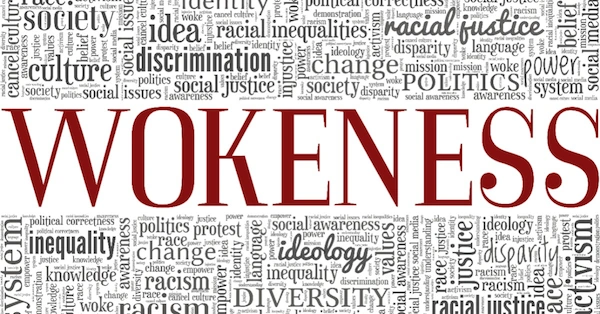
The Etymology of Consciousness: Origins and Metamorphosis
The term “woke,” emerging from African American Vernacular English (AAVE), originally embodied a profound spiritual concept—an awakening of consciousness to previously unseen realities. This linguistic genesis points not merely to political awareness but to a fundamental shift in perception, akin to what mystical traditions across cultures have described as “the lifting of the veil.” The civil rights movements of the 20th century channeled this concept, calling humanity to witness systemic injustices that had long been rendered invisible by collective denial or what philosopher Charles Mills termed “epistemologies of ignorance.”
This etymological journey reveals how language itself becomes a vessel for consciousness evolution. When Blues musician Leadbelly urged listeners to “stay woke” in his 1938 protest song about the Scottsboro Boys case, he was invoking a state of vigilant awareness that transcended mere physical wakefulness—it was an invitation to witness reality without the distortions of privileged perception. This represents what phenomenologists might call an “intentional directedness” toward the suffering of others—a radical reorientation of one’s attentional economy.
From a deeper spiritual perspective, this awakening represents what Jean Gebser called a “mutation of consciousness”—a necessary phase in humanity’s journey toward integral awareness. All great wisdom traditions speak of awakening from the slumber of conditioned perception: Buddhism’s concept of vidya (clear seeing), Plato’s allegory of the cave, or the Gnostic journey from hylic (material) to pneumatic (spiritual) consciousness. The initial woke movement embodied this transformative impulse: the recognition that our interconnectedness demands we acknowledge each other’s suffering as inseparable from our own wholeness.
The Hermeneutics of Awakening: Interpreting Social Justice Through Spiritual Lenses
At its most illuminated, woke consciousness represents what theologian Paul Tillich called “the courage to be”—facing uncomfortable truths about social structures that privilege some while diminishing others. This courage manifests as a willingness to see beyond what sociologist Pierre Bourdieu termed “doxa”—the unquestioned beliefs that structure society but remain invisible precisely because they are taken for granted by those who benefit from them.
The awakening to social injustice parallels what contemplative traditions describe as the development of “witness consciousness”—the capacity to observe societal patterns without being completely identified with or captured by them. Just as meditation creates a space between stimulus and response, social awareness creates a space between cultural conditioning and ethical action. Through this lens, becoming “woke” shares fundamental characteristics with Buddhist prajna (transcendent wisdom), the Hindu concept of viveka (discernment), or the Sufi practice of muhasaba (self-reckoning).
This awakening is fundamentally an act of compassion—the ability to see beyond one’s limited perspective and recognize the lived experiences of others as equally valid and worthy of attention. Martin Buber’s distinction between “I-It” and “I-Thou” relationships becomes relevant here: woke consciousness at its best transforms our encounter with others from objectification to reverence, from utilitarian calculation to sacred recognition.
The Dialectics of Shadow: When Liberation Becomes Constraint
As with all human movements, however, the evolution of woke culture reveals what Hegel would recognize as a dialectical process—thesis generating antithesis, awaiting a higher synthesis. What begins as liberation can calcify into new forms of constraint, illustrating what Carl Jung termed “enantiodromia”—the tendency of things to transform into their opposites when taken to extremes.
This transformation reveals the paradoxical nature of all awakening processes. As philosopher Ken Wilber observes, each new stage of consciousness development brings both increased capacity and new potential pathologies. The spiritual irony within certain expressions of woke culture lies in how awakening to injustice can itself become a source of new rigidities—what Buddhist teacher Chögyam Trungpa called “spiritual materialism,” wherein spiritual insights become possessions that bolster the ego rather than transcend it.
The Paradox of Collective Judgment
When awareness of systemic discrimination leads to categorical judgments of individuals based solely on their demographic identities, we witness what philosopher Emmanuel Levinas might call the eclipse of “the face”—the unique, irreducible presence of the other that exceeds all categories. This mirrors what spiritual traditions describe as “mistaking the map for the territory”—confusing our conceptual frameworks for reality itself.
The essence of this paradox lies in how movements seeking to overcome reductionism can themselves become reductionist. The person becomes subsumed under collective identities, leading to what philosopher Martin Heidegger might call a “forgetfulness of Being”—the unique essence of each person disappears behind the veil of categorical thinking. This represents not progress but what Kierkegaard would call “a relapse into immediacy”—unconsciously adopting new forms of the very patterns one seeks to transcend.
The Ontological Tension of Identity Politics
Identity politics, while illuminating important dimensions of experience, can inadvertently reinforce what philosopher Jacques Derrida criticized as “metaphysics of presence”—the belief in stable, essential identities that exist prior to their social construction. When group identity becomes primary, we risk what theologian Martin Buber warned against—the collapse of “I-Thou” into “I-It” relationships, where persons become mere specimens of categories rather than singular beings whose depth transcends all classification.
This creates what philosopher Gillian Rose called “the broken middle”—a space where the universal and particular fail to reconcile. The spiritual challenge lies in what Paul Ricoeur termed the “hermeneutics of suspicion” directed not only at dominant narratives but also at one’s own liberatory frameworks. How might we hold both the reality of systemic patterns and the irreducible uniqueness of each person without sacrificing either truth?
The Alchemy of Trauma: From Wound to Weapon to Wisdom
Legitimate wounds from historical and ongoing injustices represent what archetypal psychologist James Hillman might call “sacred wounds”—injuries that, properly tended, can become sources of profound insight. However, these same wounds, when left unmetabolized through what Jung called “shadow work,” can transform into what philosopher René Girard termed “mimetic rivalry”—competitive victimhood that perpetuates cycles of accusation and counter-accusation.
This dynamic reveals what philosopher Martha Nussbaum describes as “the fragility of goodness”—how even our most noble aspirations can become corrupted when we fail to recognize our own capacity for the very dynamics we condemn in others. When wounds become primary identities rather than passages to greater wholeness, we witness what theologian Henri Nouwen called “the wounded healer” paradox inverted—the wound becomes not a source of compassion but of division.
The Contemplative Crisis of Digital Discourse
Digital discourse, particularly on social media, operates at a speed and intensity that often precludes what philosopher Simone Weil called “attention”—the rare and difficult capacity to truly see reality without projection or distortion. Ancient wisdom traditions across cultures emphasize silence, reflection, and measured response as prerequisites for wisdom. The contemplative traditions speak of hesychia (stillness), mushin (empty mind), or heshbon hanefesh (soul accounting)—all practices that create the spaciousness necessary for genuine understanding.
The frenetic pace of modern discourse works against these spiritual technologies, creating what philosopher Bernard Stiegler terms “cognitive overwhelm”—a state where the rational mind is bypassed in favor of immediate emotional reactivity. This overwhelm manifests as what rhetorician Richard Weaver called “god terms” and “devil terms”—words that shut down thinking rather than invite it, that signal tribal belonging rather than promote understanding.
In this environment, we witness what philosopher Harry Frankfurt termed “bullshit”—discourse unconcerned with truth but rather with effect. Unlike the liar who must know the truth to effectively conceal it, the bullshitter has abandoned the truth criterion altogether in favor of performative signaling. This represents a spiritual crisis of the first order—what Plato would recognize as the triumph of rhetoric over dialectic, persuasion over truth-seeking.
The Phenomenology of Fear in Modern Discourse
When fear of saying the wrong thing overtakes genuine curiosity about others’ experiences, we lose what philosopher Edith Stein called “empathic intuition”—the capacity to directly apprehend another’s subjective experience. This fear creates what existentialist philosopher Martin Heidegger termed “inauthenticity”—a mode of being governed by external norms rather than internal truth.
This climate of apprehension transforms dialogue from what Gadamer called a “fusion of horizons”—the merging of different perspectives to create new understanding—into what sociologist Erving Goffman described as “impression management”—the careful performance of approved scripts. The result is what philosopher Jürgen Habermas would recognize as the colonization of the “lifeworld” by the “system”—authentic human connection replaced by regulatory compliance.
The spiritual casualty in this dynamic is what theologian Paul Tillich called “the courage to be”—the willingness to stand in one’s truth even at the risk of rejection. Without this courage, dialogue becomes what philosopher Charles Taylor might call “mutual flattery” rather than mutual transformation.
Collective Shadow and the Anatomy of Group Identity
The Spiritual Economics of Belonging
The herd effect represents what religious traditions have long recognized as humanity’s tendency toward what the Upanishads call “maya”—collective illusion maintained through mutual reinforcement. This pattern appears across wisdom literature, from the Taoist warning against following the crowd to Jesus’s caution about the wide gate that many enter.
In woke discourse, this manifests as what spiritual teacher Thomas Merton might call “the contagion of conformity”—where authentic concern for justice becomes indistinguishable from what sociologist Thorstein Veblen identified as “conspicuous consumption” of moral righteousness. This phenomenon reflects our profound spiritual need for tribal belonging, which, when not consciously examined, can override what philosopher Søren Kierkegaard called “the teleological suspension of the ethical”—the capacity to stand alone in one’s truth even against group consensus.
The Existential Challenge of Authenticity
The spiritual challenge within any collective movement lies in what existentialist philosophers call “bad faith”—the betrayal of one’s own freedom through unexamined conformity. When external pressures to adopt certain positions override inner conviction, the self experiences what philosopher Jean-Paul Sartre termed “nausea”—a profound alienation arising from the gap between authentic being and social performance.
This alienation manifests in several forms within contemporary discourse:
- The substitution of terminology for transformation (changing language without changing hearts)—what philosopher Theodor Adorno would call “jargon of authenticity.”
- The performance of outrage without the inner work of examining one’s own complicity—what psychoanalyst Melanie Klein might term “projective identification.”
- The avoidance of nuance in favor of absolutist positions that provide certainty but prevent growth—what theologian Paul Tillich called “idolatry” (mistaking relative truths for absolute ones).
Each of these represents what spiritual traditions would recognize as forms of self-deception—momentary comfort gained at the expense of deeper transformation.
The Alchemy of Integration
The spiritual antidote to herd mentality is not isolated individualism but what philosopher Maurice Merleau-Ponty called “intercorporeality”—the recognition that we are always already involved with others, yet must maintain what psychoanalyst D.W. Winnicott termed “true self” functioning within that involvement. This represents a higher integration where belonging and authenticity no longer stand in opposition but inform each other in ongoing dialogue.
This integration invites participants in social justice movements to practice what philosopher Michel Foucault called “care of the self”—rigorous self-examination not as narcissistic indulgence but as prerequisite for ethical action. This includes:
- Regular contemplative practices that foster what phenomenologist Edmund Husserl termed “epoché”—the suspension of judgment necessary for clear seeing.
- Cultivation of what Zen traditions call “shoshin” (beginner’s mind)—approaching each situation without preconceptions.
- Practicing epistemic humility—acknowledging what philosopher Nicholas of Cusa called “learned ignorance,” the recognition that finite minds cannot grasp infinite reality.
- Honoring what philosopher Hans-Georg Gadamer called the “historically effected consciousness”—the awareness that our understanding is always shaped by traditions that precede us.
The Teleology of Justice: Toward a More Complete Awakening
The evolution of woke culture reveals a fundamental spiritual truth: awakening is not a destination but what philosopher Alfred North Whitehead called “concrescence”—the continuous growth toward greater complexity and integration. Just as individuals move through what developmental psychologist Robert Kegan identifies as successively more comprehensive meaning-making systems, collective movements undergo their own evolution, complete with growing pains and shadow elements.
The Spiral Path of Social Consciousness
The path forward lies not in what philosopher Hegel would call “abstract negation”—simple rejection of previous stages—but rather in “determinate negation” that preserves what is valid while transcending what is limited. This invites what Buddhist philosophy calls “the middle way” between eternalism (clinging to fixed positions) and nihilism (rejecting all positions).
This middle way recognizes several complementary truths:
- Awareness of systemic injustice is essential spiritual work that aligns with what liberation theologian Gustavo Gutiérrez calls “the preferential option for the poor.”
- Individual dignity transcends group categorization, embodying what philosopher Immanuel Levinas termed “the infinity of the face”—the inexhaustible uniqueness of each person.
- Compassion must extend to those with whom we disagree, practicing what Christian theology calls “agape”—love that seeks the good of the other without demanding reciprocity.
- Justice without what philosopher Martha Nussbaum calls “political emotions” becomes mechanical calculation rather than human flourishing.
- True transformation requires both inner and outer work—what philosopher Pierre Hadot called “spiritual exercises” alongside political engagement.
Beyond Binary Thinking: The Dialectical Integration
The most sophisticated understanding of social justice transcends what philosopher Ken Wilber terms “flatland”—the collapse of reality to a single dimension of analysis. It recognizes what integral theory calls “tetra-emerge”—how change must occur across interior and exterior dimensions, in both individual and collective domains.
This integral approach avoids what philosopher Jean Gebser identified as the pathology of “deficient rationality”—binary either/or thinking that reduces complex realities to simplistic oppositions. Instead, it embraces what philosopher Edgar Morin calls “complex thinking”—the capacity to hold contradictory truths in creative tension rather than prematurely resolving that tension through reductionism.
The Perennial Wisdom of Justice
In the ancient wisdom of many traditions, the highest spiritual attainment is not separation from the world’s suffering but rather what Hindu philosophy calls “lila”—divine play that remains fully engaged with both suffering and joy without being consumed by either. In this light, the evolution of woke culture represents humanity’s ongoing struggle to integrate awareness of injustice with the equally important awareness of our fundamental interconnectedness.
As we engage with these socio-political phenomena, perhaps the wisest guidance comes from the mystical traditions that remind us what Zen teachers call “not one, not two”—the paradoxical truth that we are neither separate from each other (justifying indifference to injustice) nor reducible to our social categories (justifying new forms of reductionism). We remain—in the words of Martin Luther King Jr., himself drawing on ancient wisdom—”caught in an inescapable network of mutuality, tied in a single garment of destiny.”
The ultimate measure of any social movement lies not in the righteousness of its positions but in what philosopher Hannah Arendt called “natality”—its capacity to birth new possibilities for human flourishing that include ever-widening circles of consideration. This represents what theologian Jürgen Moltmann calls “the horizon of hope”—the vision of a future that honors both justice and unity, both difference and commonality, both the particular wounds of history and the universal longing for wholeness.
DO YOU SUFFER FROM WOKENESS?
Select the statements you share and that reflect your thoughts.
Count the number of checked boxes and read the corresponding profile.
0: You are not suffering from Wokeness at all
1-2: You show some mild symptoms of Wokeness
3-4: You show worrying symptoms of Wokeness
5-6: You are a Wokeness Spokesperson!





